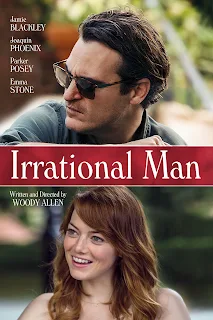The Conclave (2024)
Director: Edward Berger.jpeg) |
| https://www.microsoft.com/en-gb/p/conclave/8d6kgwz2d5gg |
The selection of a new Pope, the head of the Roman Catholic Church, has always fascinated everyone, both Christians and non-Christians. It is not merely that they wait with bated breath to learn who the next de facto leader of the largest religion will be, but rather the actual process of selecting the next Pope, which has been shrouded in considerable mystery and secrecy. This enigma has been a source of numerous conspiracy theories and the theme of many best-selling novels over the years. Dan Brown's The Da Vinci Code and Angels and Demons offer readers a ringside view of the setup and day-to-day operations within the papal residence and workplace, the Vatican Palace, and the Holy See. This renders it even more intriguing that Vatican City remains in contention as the wealthiest nation by area, alongside Jersey (a British Crown Dependency), Monaco, and Luxembourg, depending on how one calculates the figures.
Most people are familiar with the Conclave, the smoke signal that signifies the election of a new Pope. It is a painstaking process involving a specially selected group of Cardinals confined in a sealed room for days of voting and debate. The candidate who ultimately prevails must achieve a clear majority of more than two-thirds of the votes.
This film, based on Robert Harris's novel of the same name, portrays a fictional scenario in which a Pope dies, leaving the Secretary of the College of Cardinals to convene the papal Conclave while dealing with numerous secrets that the former Pope had kept close to his heart.
From the outset, we quickly realise that there is factionalism within the Roman Catholic Church. The Cardinals tend to act collectively and vote based on their shared language and skin colour—Spanish speakers, Anglophiles, Africans, and so forth.
Some voters express their desire to be elected in private, yet they timidly deny having any such ambitions; the Secretary, the protagonist, is one such individual.
Little secrets emerge one by one regarding the previous Pope's private meetings, which were not recorded. They all remain hearsay, with one clergyman emphatically denying them and another swearing to their truth. Amidst all this, a clergyman appears in the voting hall as the Archbishop of Kabul, a position few knew the Vatican had a representative for. The former Pope appointed him in secret (in pectore) the year before.
The voting begins. Four serious candidates have been identified: a Nigerian, a US citizen, a Canadian, and an Italian cardinal. Each holds differing views on how the Church should navigate the upcoming times. Some are radical, while others may be more conservative or, at the opposite end of the spectrum, more liberal.
One by one, scandals unfold. The Nigerian Cardinal is revealed to have a love child and is removed from the contest. Even after days of voting, a clear winner cannot be determined. In the midst of all this, the Vatican is struck by a bomb, part of a wave of bombings by Muslim fundamentalists. An emotional outburst from the Cardinals concerning the rise of Islamic terrorism worldwide was not well received by the other clergymen. Unexpectedly, the Archbishop of Kabul emerged victorious, and white smoke was seen billowing from the chimney.
At that moment, another dark secret emerges, this time concerning the medical history of the newly appointed Pontiff! It's an enjoyable film. I did not anticipate that the tale of elderly men in drab, plain attire, speaking in a cultured manner without any risqué scenes, could capture viewers' attention.
.jpeg)




.jpeg)










.jpeg)

